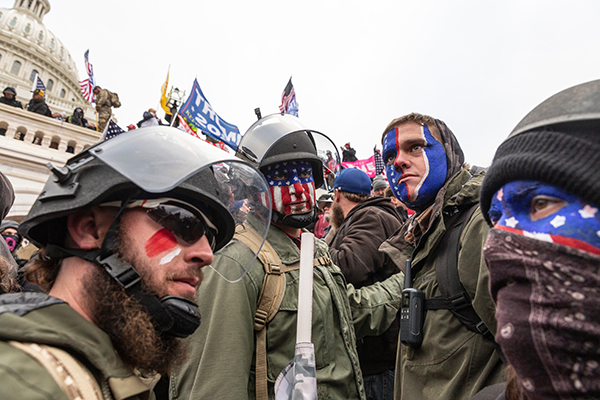 The Polis Center’ research project, Religion and Urban Culture 2.0 (RUC 2.0), seeks to understand how Indianapolis congregations are responding to the dramatic changes we all have experienced over the past several years. Among these challenges are growing economic inequality, awareness of systemic racism, immigration, political polarization, and the pandemic, among many others. Although national surveys reveal that religious affiliation continues to decline in the United States and, by implication, in Indianapolis, RUC 2.0 uses observations and interviews to examine congregational resiliency and creativity. How are congregations responding to change, and especially what are the creative responses that are worthy of notice?
The Polis Center’ research project, Religion and Urban Culture 2.0 (RUC 2.0), seeks to understand how Indianapolis congregations are responding to the dramatic changes we all have experienced over the past several years. Among these challenges are growing economic inequality, awareness of systemic racism, immigration, political polarization, and the pandemic, among many others. Although national surveys reveal that religious affiliation continues to decline in the United States and, by implication, in Indianapolis, RUC 2.0 uses observations and interviews to examine congregational resiliency and creativity. How are congregations responding to change, and especially what are the creative responses that are worthy of notice?
January 6th prompted religious reflection. One of the most evident changes over the past two decades has been the dramatic increase in political partisanship. Such polarization has existed throughout U.S. history, with the 1960s an example within living memory. The hyper-partisanship of the 2020 election and its aftermath, especially in the assault on the U.S. Capitol on January 6, 2021, provided us a unique opportunity to gauge its impact on local congregations and clergy. We expected to see wide range of political opinions and different degrees of political participation by congregations, and we saw that range. What we did not expect was to witness a violent mob descending on the U.S. Capitol on Wednesday, January 6.
That event, drenched in religious symbolism, offered a rare opportunity to think about the role of white Christian nationalism as part of our polarized social environment. Christian nationalism is currently being analyzed across academic disciplines, including our IUPUI colleague, sociologist Andrew Whitehead, the co-author with Samuel Perry (Baylor University) of Taking Back America for God: Christian Nationalism in the United States. Whitehead and Perry assert that “Christian nationalists believe that the U.S. was founded as an explicitly Christian nation; that the country’s success is in part a reflection of God’s ultimate plan for the world; that prayer should be allowed in public schools; and that the federal government should declare the U.S. a Christian nation, advocate Christian value. Read more here.
Subscribe here for upcoming issues

